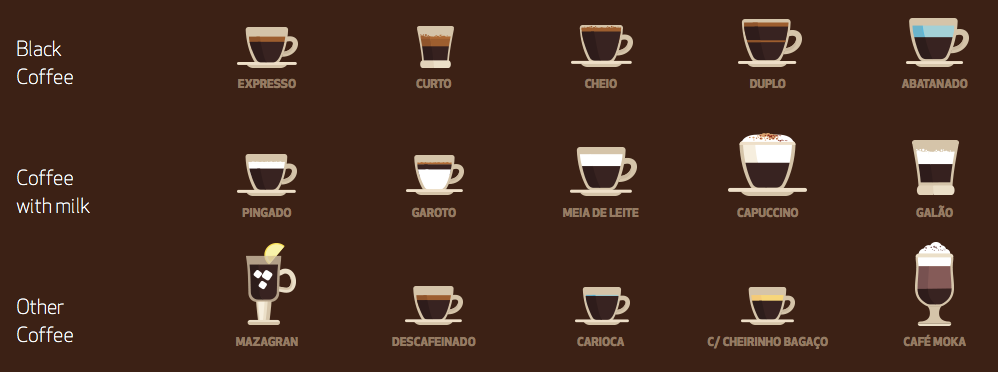To order a coffee can be so confusing in Portugal, exactly what is an abatanado? Any idea what a pingado is?
Drinking coffee is ingrained in Portuguese culture; it is the social beverage of choice most would say. Unlike most of the world though, coffee parlance in Portugal does not follow the traditional language of coffee ie Italian with latte, cappuccino etc.
The Associação dos Cafés com História de Portugal (Association of Cafés with Portuguese History) has, this year, won an award presented by the European Cultural Tourism Network (ECTN) in the category “Transnational Thematic Tourism — the main theme being “Special Interest Tourism Development and Promotion based on Cultural Heritage”.
Café Calcinha, in Loulé, is part of the Route of Cafés with History (an initiative of Vítor Marques from Coimbra) and is part of the ECTN also.
Vítor Marques explains, “historical cafés represent heritage, history and identity and show the living memory of our society and our cities. Due to their commercial longevity, it can also be said that, they express the values, traditions, memories and social experiences of our cities, our countries and undoubtedly, Europe”.
To satisfy your curiosity and encourage you to try different ways of enjoying your coffee, take a look at the guide produced by Portuguese Coffee.

Grand Carob, an Algarve-based company, has just launched a 100% natural drink made mostly from carobs (7% almonds and flôr de sal).
“This could almost be considered to be the ‘Porsche’ of vegetable drinks. It is 100 percent natural and has a much higher concentration of antioxidants than other similar products,” founder Nuno Alves told Lusa news agency.
Costing €1.39, the drink is currently available in gourmet supermarkets and will soon be available in national supermarkets also.


2 thoughts on “Coffee and carobs”